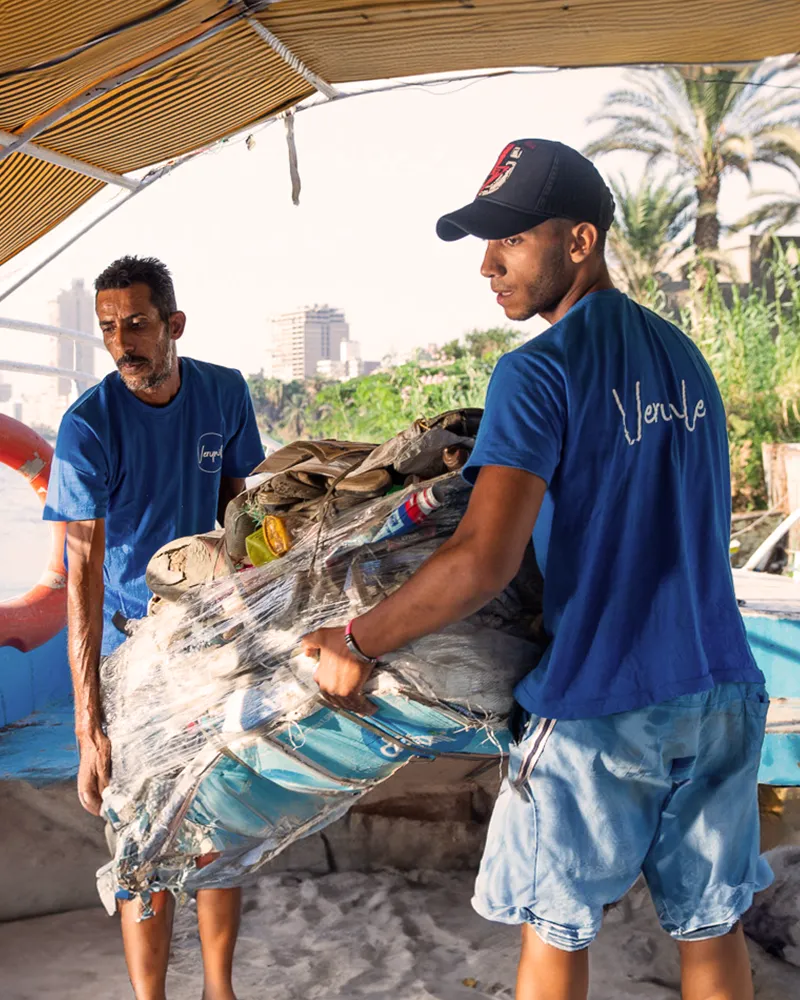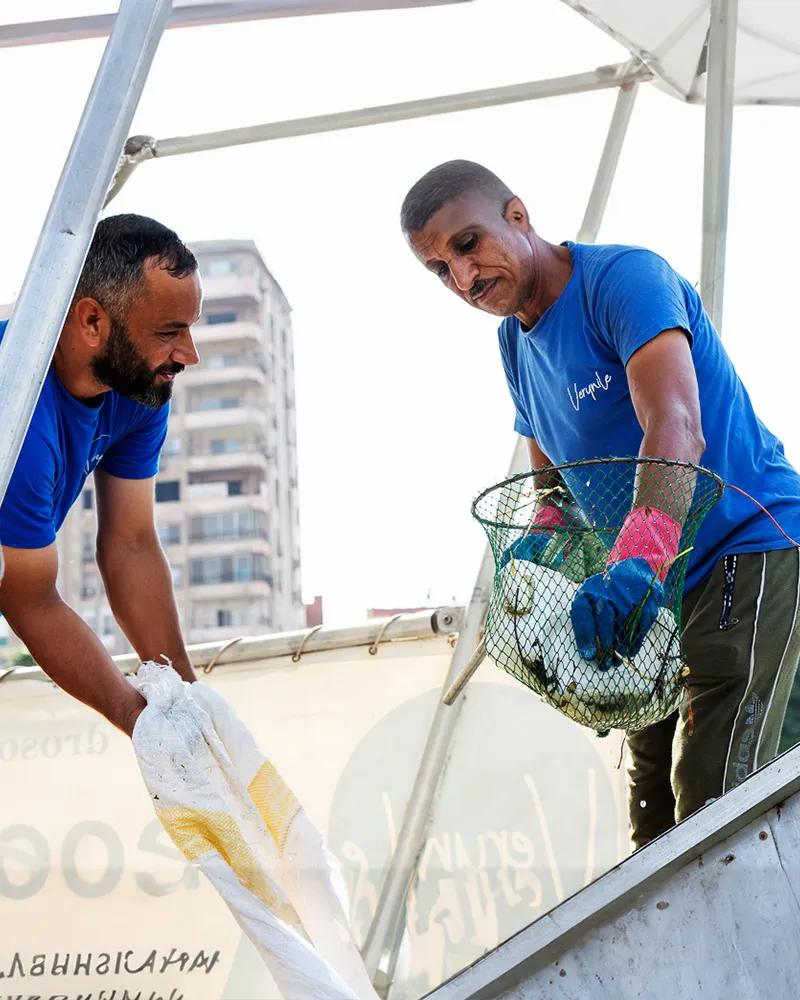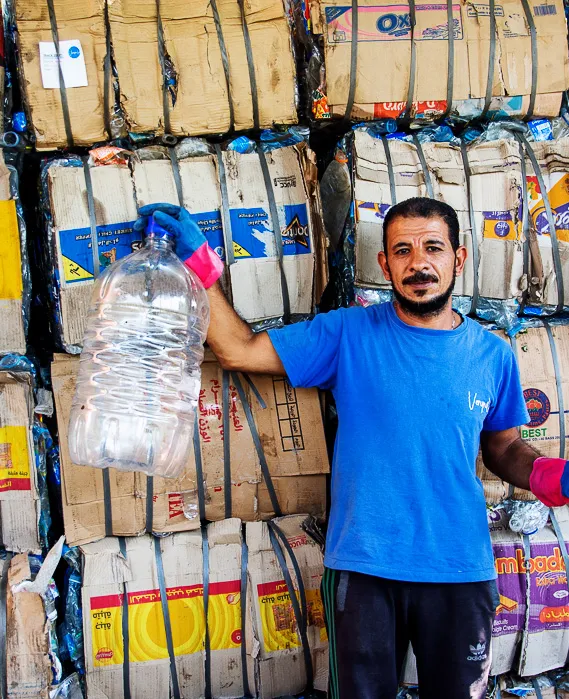





Collect Plastics
Collecting & recycling plastic waste while empowering local communities in the Global South with new income opportunities.
Why collect plastics?
Ecological Impact
Plastic pollution is one of the greatest environmental issues we are facing since it affects all life on earth from land to the sea. Collecting and recycling it means saving ecosystems and having to produce less new plastics, thereby avoiding CO2.
Socio-Economic Impact
Collecting plastic waste empowers local communities with income opportunities and raises awareness to fight waste pollution in the countries the projects are active.
How does plastic collection work?
We work with local partners in the Global South that collect, sort, recycle and co-process waste from land, rivers and coastlines - protecting both ecosystems and local waste pickers & fisherman communities.

Where are our project partners located and what do they focus on?
Project Partner
Country
Focus
Egypt
Collect waste from River Nile
Cambodia & Vietnam
Removing non-recyclable plastic from coastlines
Sustainability criteria & Focus SDGs


Community involvement & cultural awareness
All projects involve local communities, giving help to self-help. Cultural traditions are strictly considered.
Co-benefit
We work with projects that include social and/or environmental co-benefits.
End-of-life management
There is no illegal dumping of the waste & the fate of the waste is clearly reported.
Ethical codex
Only projects with high ethical standards and fair wages are chosen after a careful due diligence.
Technological Readiness
We choose either projects already able to properly track or monitor the trees or projects which we can empower.
SDG Contribution
All our projects support SDGs and have a special focus
tailored to their region.
Empowering fishing communities in the Nile
A pioneering initiative, focusing on sustainable Nile cleaning and environmental awareness! Through their unique approach that intertwines social and environmental impact, they use eco-friendly solutions to remove inorganic waste from the river. With the Reviving Cairo Fishermen project, they empower local fishermen to clean the Nile daily, resulting in the removal of approximately 100 kg of plastic waste daily and contributing to the restoration of biodiversity in the Nile.
2.000
Kg of plastics collected by Impact Hero
200
Tones of waste removed
21+
Jobs created
45+
Marginalised fisherman involved

Plastic is collected from diverse sources, determined by the project and supplier, which may evolve as the project progresses. Common locations for trash collection include beaches, rivers, waterways, illegal dumping sites, and roadways. It's important to emphasize that collectors gather not only plastic but also various types of waste and trash during these efforts.
After collection, the waste is taken to a sorting facility, where it is categorized into recyclable and non-recyclable waste. Recyclable materials are sent to recycling facilities for reuse, while non-recyclable waste is utilized to produce alternative fuels for industries. The collected waste is carefully documented, and waste pickers receive fair compensation for their efforts.
We exclusively collaborate with organizations that actively engage in supporting and assessing their impact on local communities. According to surveys conducted with waste pickers, 87% of them have observed significant environmental improvements, resulting in a remarkable 151% increase in their average monthly income. Additionally, 80% of collectors now feel a personal responsibility for environmental protection. Our project directly contributes to both the economy and the environment, ensuring a positive impact on multiple fronts.












